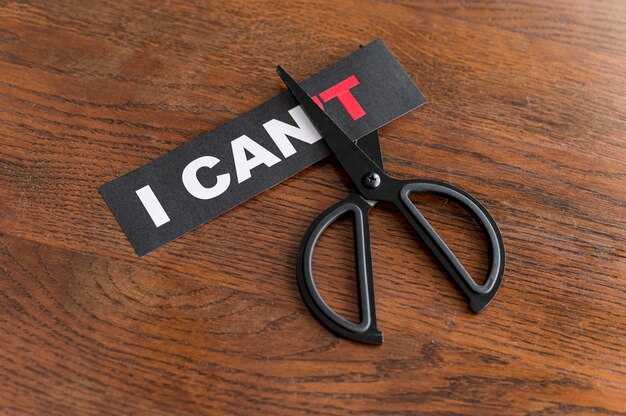The single most potent way to create genuinely meaningful connections with others is to make them feel heard. People crave that — and doing it well is a craft few of us learn, especially if we grew up in dysfunctional households. In this video I’ll walk you through why loneliness is rampant right now: it was already a serious problem, and the 2020 lockdowns made it far worse. For many, the difficulties you’ve always had connecting with others only intensified then and haven’t really improved. Conversations can feel hollow, halting, awkward or forced. Maybe small talk never comes easily for you and meeting new people feels daunting; or maybe you’re great at light chatter but find that others grow uneasy and promising exchanges fizzle out into painful silence. No matter how hard it is, being able to converse well is central to building a connected life. Learning a few simple techniques to open dialogue, pique someone’s interest, and make them want to keep talking will benefit you lifelong — and it helps the other person too, because you could be drawing out a wonderful potential friend and making them feel better about themselves.
One reason so many conversations fail is that, without noticing it, we shut them down before they really start. You may not always be conscious of doing this, but you certainly notice it when someone does it to you. Let’s go over common habits that act as conversation-stoppers, how they show up, and how to change them so you become the kind of person who puts others at ease and brings out the best in them — the ideal basis for friendship. Some of these points may seem obvious, but it’s useful to remind yourself what not to do.
First, missing the cue when someone is reaching out to connect is a frequent mistake. Picture yourself at a friend’s birthday dinner in the living room: someone approaches and asks, “So, how do you know Kristen?” If you reply with a single word — “Work” — and stare at the floor, you’ve likely ended the exchange. You might tell yourself you were only answering a factual question — you met her at work — but that question was offered as a conversational opening, a “bid” to connect. The Gottman Institute uses the term “bid” to describe those small gestures people make to invite connection; the idea applies to all relationships, not just romantic ones. A soft question like that gives you an easy exit if you want to be left alone, or an opening to chat for a while.
That leads straight into the second conversation-killer: taking the discussion from small talk straight into negativity. If you respond, “I met Kristen at work; we were on this great team but had a horrible boss and she stood by me when he fired me,” you’ve jumped past casual connection into heavy territory. Complaining about troubles is an easy way to bond — misery loves company — but it often makes the exchange feel heavy, unsafe or depressing when you’re just beginning to get to know someone. Early on, stick to neutral or positive comments: “Isn’t Kristen great?” That keeps the tone light and leaves room for deeper disclosures later. If you consistently fish with negative bait, you’ll attract people who enjoy negativity, which is not what most viewers here want — you’re watching because you want better friendships and a healthier social life. Focus initially on praise, appreciation and optimism; those are solid small-talk openers that create space for growth and healing together instead of fragile friendships based on shared trauma.
The third conversational mistake is a lack of curiosity about what the other person has shared. Listening passively is not enough. If someone tells you they volunteer at an animal shelter and you reply, “Oh, that’s nice,” the interaction stalls. If you want the conversation to deepen, ask follow-ups: What inspired you to volunteer? Is it hard when animals get adopted and you don’t see them again? Do many animals get adopted these days? Do you get attached? Each thoughtful question lifts the exchange like a balloon tossed around a group — every added contribution sends it a bit higher. The best conversations work like that balloon: they rise as people add to them. When curiosity is present, new friendships are more likely because you’re both discovering and building something together.
A related stopper that often frustrates people is failing to celebrate someone’s good news because you immediately turn it into a hook for your own story. If someone announces they just got into grad school and you respond by sharing your grad-school anecdote, it can feel like their news vanished and you took over. People tell good and bad news to be heard and supported. If you immediately offer another example you’re thinking of, the speaker can feel ignored and alone. Instead, treat conversations as opportunities to learn about another person. Rather than using what they say as a bridge to tell your own tale, remain present and ask about their experience; that reveals whether they’re also curious about you, and it opens genuine exchange. Aim for balanced sharing — a 50/50 rhythm over time — and mix personal stories with discussion of ideas so the interaction doesn’t become a contest of anecdotes.
The fifth conversation-killing habit is speaking before you fully understand what someone is saying. People often blurt agreement or disagreement too soon and end up talking past each other. For instance, if someone asks your view of Internal Family Systems as a trauma therapy and you say you “can’t say you resonate with it” but respect others who find it helpful, and another person replies, “Me too, I really hate it,” you’ve been misrepresented and possibly put in an awkward position. Jumping in before clarifying can make you appear to have said something you didn’t, and that can be used against you. This kind of inattentive response — what I call conversational malpractice — pushes people away. The antidote is to listen carefully to what’s actually being said, then ask more questions to understand it better. Most people are interesting when you pay attention; being open to learning their perspective (you don’t have to agree) lets you see the picture they’re painting and connect with them more deeply.
Sixth, offering unsolicited advice is a sure way to shut a conversation down. If someone hasn’t asked for guidance, your suggestions will likely be heard as criticism. You can propose something once — “I’m doing this thing called the Daily Practice; I think you might like it. Want to try it together?” — but if they decline, accept that answer. In close relationships, if something is important enough, you can ask once, maybe twice; three times should be the outer limit for pressuring someone to change. Beyond that, repeated requests become demands to reshape a person into your ideal and feel like criticism, which repels people. There are times when a behavior is intolerable and you must set boundaries, but that’s different from habitually forcing unsolicited advice onto someone. Real love sometimes requires clear limits or even stepping away, but in ordinary conversation, keep unsolicited counsel to a minimum.
The seventh stopper — one of my personal pet peeves — is the “Doctor, actually” response: immediately correcting a small factual detail or contradicting an example someone used, often to demonstrate expertise. This is common in online comments and in real life: someone is making a larger point, and another person zeroes in on a peripheral detail to say, “Actually, that’s not right.” Even if the correction is true, this behavior comes across as a know-it-all move and derails the speaker’s intent. If someone mentions they might buy an electric car, you don’t need to launch into why electric cars aren’t all they’re cracked up to be. Instead, ask about what interests them: Why do you want one? How would it fit your commute? Asking questions keeps the focus on their perspective and preserves connection. Save nitpicks for another time; when you constantly correct or debunk, you embarrass and alienate people and shut down fruitful exchanges.
That ties into the eighth conversational hazard: anything that corrects or critiques someone publicly can humiliate them, especially in a group. Sarcasm, abrupt subject changes, or turning away while someone is speaking all signal that you’re not present. If you want to create connection, be sensitive: help people feel included, heard and appreciated. There’s a place for debate, but it’s not during the early stages of building a relationship.
Ninth, leaving no room for the other person to speak kills conversations quickly. This can mean monopolizing the floor, but it also happens when extroverts fill every silence because they interpret an introvert’s pause as an invitation to jump in. Introverts often need quiet to process and will share more after a moment. Practice tolerating pauses; you might find the other person opens up when given that space. If you realize you’ve been dominating, apologize and invite their perspective: ask for their take on what you were just discussing.
Finally, the tenth common mistake is failing to show people — in ways they understand — that you’re listening, interested and appreciative. If you want a friendship, you may need to demonstrate that through eye contact, nods and small affirming remarks like, “I’m glad you said that,” or “That’s a really good point.” Even if this kind of positive feedback feels awkward at first because of past trauma, neurodivergence or a stoic temperament, it’s a skill worth practicing. Matching someone’s tone roughly and offering validation helps them feel seen and understood; people like to be appreciated even if they don’t always show it. This is not manipulative — it’s a genuine kindness that invites more connection and will likely bring more friends into your life than you expect.
Those are ten common ways to shut down a conversation. I’m sure you can think of others — feel free to share them in the comments. If you’re actively working on being a better friend, there’s a free download with simple, practical steps you can use to improve your friendship skills — you can click on that right here — and I’ll see you very soon. [Music]


 These Conversation Mistakes Push People Away (Try This Instead)">
These Conversation Mistakes Push People Away (Try This Instead)">

 Relationship EXPERT enthüllt Geheimnisse der Verbindung: Dr. Sue Johnson">
Relationship EXPERT enthüllt Geheimnisse der Verbindung: Dr. Sue Johnson">
 Umgib dich Schläger? Der verborgene Grund, warum du sie hereinlässt">
Umgib dich Schläger? Der verborgene Grund, warum du sie hereinlässt">
 Das Verhalten Ihres Partners ist trauma-bedingt, aber es ist trotzdem nicht in Ordnung">
Das Verhalten Ihres Partners ist trauma-bedingt, aber es ist trotzdem nicht in Ordnung">
 Das STÄRKSTE Zeichen dafür, dass ein Vermeidender Sie tief liebt">
Das STÄRKSTE Zeichen dafür, dass ein Vermeidender Sie tief liebt">
 Wenn Sie während eines Konflikts abstürzen, schauen Sie hier">
Wenn Sie während eines Konflikts abstürzen, schauen Sie hier">
 Wenn Ihr Partner diese Sätze sagt, sind sie vermeidend">
Wenn Ihr Partner diese Sätze sagt, sind sie vermeidend">
 Until This One Shift Finally Made the Avoidant Come Back | Mel Robbins Motivational Speech">
Until This One Shift Finally Made the Avoidant Come Back | Mel Robbins Motivational Speech">
 Für Heilung ist vernüfte Handlung wirkungsvoller als traurige Geschichten">
Für Heilung ist vernüfte Handlung wirkungsvoller als traurige Geschichten">
 Ein Partner sollte Ihre Vergangenheit kennen — aber was, wenn Sie gerade erst daten?">
Ein Partner sollte Ihre Vergangenheit kennen — aber was, wenn Sie gerade erst daten?">
 BETRUG ist für EGOISTISCHE FEIGLINGE (wie mich)">
BETRUG ist für EGOISTISCHE FEIGLINGE (wie mich)">